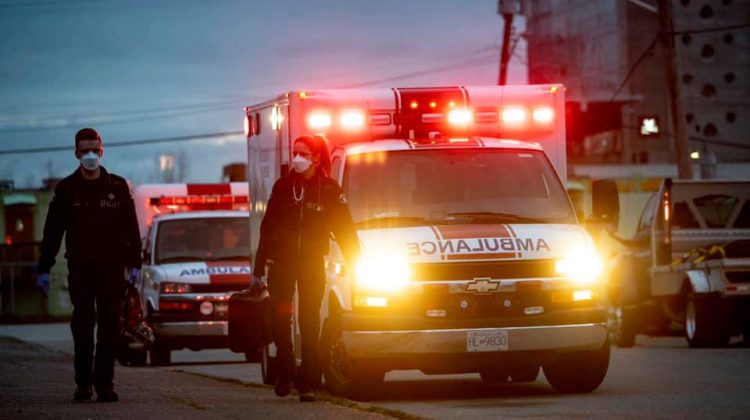Changes to the way ambulance stations are managed will improve emergency coverage for remote coastal communities.
Acting on recommendations from BC Emergency Health Services (BCEHS) and the association representing paramedics and dispatchers, BC is moving away from requiring staff to be on call and towards models that have them in ambulance stations more often.
Gold River and Quadra Island will use a model with at least 8 full-time paramedics in the stations, and staff on-duty 24 hours a day.
Alert Bay, Sayward, Tahsis, Cortes Island, Port Alice and Texada will use a model that maintains 8 regular part time staff in the stations.
Sointula and Zeballos stations will have a full-time unit chief and staff that are on-call.
The goal is to improve 911 response times, provide consistent care, and improve working conditions for paramedics.
“We are excited to be bringing these staffing model improvements to our paramedics and the rural and remote communities we serve,” said Leanne Heppell, BCEHS’ Chief Ambulance Officer. “We recognize that one staffing model doesn’t work for all parts of the province, and these three models will help us improve our services to better meet the needs of the community and patients and enable more of our paramedics to live and work in their home communities.”
The new models will transition:
21 communities to an “alpha” 24/7 model, which will provide more reliable 24/7 emergency response service. Communities moving to this model will have paramedics in the station on-duty three times more than with the existing model.
25 communities to a “mix shift” model, which will provide staff with more flexibility and better work/life balance. Communities moving to this model will have staff on-duty in the station twice as often as they do currently.
14 communities to a “kilo” model with a full-time permanent unit chief, which will offer more flexible staffing options to maximize local recruitment.
In addition, 55.2 FTE community paramedics will be dedicated to providing community-based care and community outreach.
In February 2023, the 2022-2025 collective agreement with the Ambulance Paramedics and Ambulance Dispatchers of BC (APADBC) was ratified. It agrees to phase out a pre-existing scheduled on call (SOC) model into one of three different models that will better address the needs of ambulance paramedics and the communities they serve.
As BCEHS transitions many part time positions to full time positions, there will be 271 full time positions added to support the new models, for an increase of 239.5 full-time equivalent.




